
The 1916 United States presidential election was the 33rd quadrennial presidential election, held on Tuesday, November 7, 1916. Incumbent Democratic President Woodrow Wilson narrowly defeated former associate justice of the Supreme Court Charles Evans Hughes, the Republican candidate.
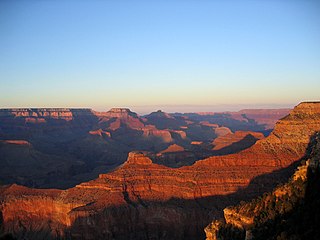
The Western United States, also called the American West, the Western States, the Far West, and the West, is the region comprising the westernmost U.S. states. As American settlement in the U.S. expanded westward, the meaning of the term the West changed. Before around 1800, the crest of the Appalachian Mountains was seen as the western frontier. The frontier moved westward and eventually the lands west of the Mississippi River were considered the West.
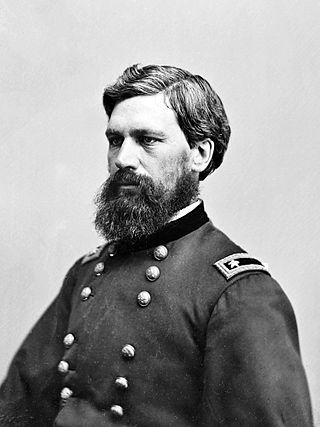
Oliver Otis Howard was a career United States Army officer and a Union general in the Civil War. As a brigade commander in the Army of the Potomac, Howard lost his right arm while leading his men against Confederate forces at the Battle of Fair Oaks/Seven Pines in June 1862, an action which later earned him the Medal of Honor. As a corps commander, he suffered a major defeat at Chancellorsville and his performance was of question at Gettysburg in May and July 1863. However, he recovered from possible career setbacks as a successful corps and later army commander, commanding the Army of the Tennessee from July 27, 1864 until May 19, 1865 leading the army in the battles of Ezra Church, Battle of Jonesborough, Sherman's March to the Sea, and the Carolinas campaign in the Western Theater.

The flags of the U.S. states, territories, and the District of Columbia exhibit a variety of regional influences and local histories, as well as different styles and design principles. Modern U.S. state flags date from the turn of the 20th century, when states considered distinctive symbols for the 1893 World's Columbian Exposition in Chicago, Illinois. Most U.S. state flags were designed and adopted between 1893 and World War I.
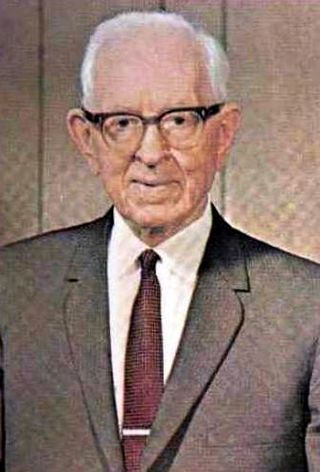
Joseph Fielding Smith Jr. was an American religious leader and writer who served as the tenth president of the Church of Jesus Christ of Latter-day Saints from 1970 until his death in 1972. He was the son of former church president Joseph F. Smith and the great-nephew of Church founder Joseph Smith.

U.S. Bancorp is an American bank holding company based in Minneapolis, Minnesota, and incorporated in Delaware. It is the parent company of U.S. Bank National Association, and is the fifth largest banking institution in the United States. The company provides banking, investment, mortgage, trust, and payment services products to individuals, businesses, governmental entities, and other financial institutions. As of 2019, it had 3,106 branches and 4,842 automated teller machines, primarily in the Western and Midwestern United States. In 2023 it ranked 149th on the Fortune 500, and it is considered a systemically important bank by the Financial Stability Board. The company also owns Elavon, a processor of credit card transactions for merchants, and Elan Financial Services, a credit card issuer that issues credit card products on behalf of small credit unions and banks across the U.S.
Howard Robert Swearer was an American educator. He served as the sixth president of Carleton College, serving from 1970 to 1977, and the 15th president of Brown University between 1977 and 1988. His death from cancer shocked and saddened the Brown community, as few had known of his illness.
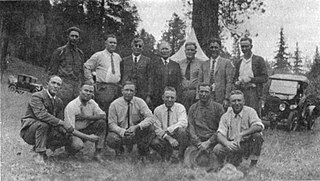
The Udall family is a U.S. political family rooted in the American West. Its role in politics spans over 100 years and four generations. Udall politicians have been elected from four different states: Arizona, Colorado, New Mexico, and Oregon. If viewed as a combined entity, the Udall-Hunt-Lee family has been elected from six states: Arizona, California, Colorado, New Mexico, Oregon, and Utah.
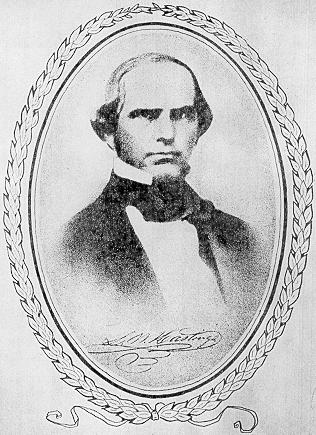
Lansford Warren Hastings (1819–1870) was an American explorer and Confederate soldier. He is best remembered as the developer of Hastings Cutoff, a claimed shortcut to California across what is now the state of Utah, a factor in the ill-fated Donner Party of 1846. He was a Major in the Confederate States Army during the American Civil War.
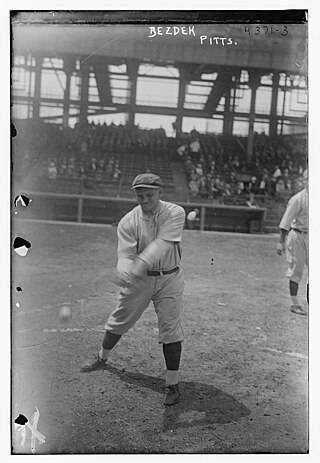
Hugo Francis Bezdek was a Czech American athlete who played American football and was a coach of football, basketball, and baseball. He was the head football coach at the University of Oregon, the University of Arkansas (1908–1912), Pennsylvania State University (1918–1929), and Delaware Valley College (1949). Bezdek also coached the Mare Island Marines in the 1918 Rose Bowl and the Cleveland Rams of the National Football League (NFL) in 1937 and part of the 1938 season. In addition, Bezdek coached basketball at Oregon and Penn State (1919), coached baseball at Arkansas (1909–1913), Oregon (1914–1917) and Penn State (1920–1930), and served as the manager of Major League Baseball's Pittsburgh Pirates (1917–1919). He was inducted into the College Football Hall of Fame as a coach in 1954.
Enrico Donati was an Italian-American Surrealist painter and sculptor.
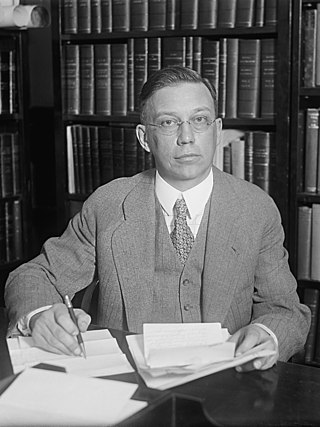
Walter Hughes Newton was a United States Representative from Minnesota who also served in the Herbert Hoover administration as Secretary to the President.
A mission of the Church of Jesus Christ of Latter-day Saints is a geographical administrative area to which church missionaries are assigned. Almost all areas of the world are within the boundaries of an LDS Church mission, whether or not any of the church's missionaries live or proselytize in the area. As of July 2020, there were 407 missions of the church.
Jesse David Jennings was an American archaeologist and anthropologist and founding director of the Natural History Museum of Utah. Based at the University of Utah, Jennings is best known for his work on desert west prehistory and his excavation of Danger Cave near Utah's Great Salt Lake. Considered an exacting academic scholar and author, he was known for conducting systematic excavations with order and cleanliness.

Henry Aldous Dixon was an American businessman and academic administrator who served three terms as a U.S. Representative from Utah from 1955 to 1961.

The National Association of Secretaries of State (NASS), founded in 1904, is the oldest non-partisan professional organization of public officials in the United States, composed of the secretaries of state of U.S. states and territories. Currently, all secretaries of state, including Washington D.C., Puerto Rico, the U.S. Virgin Islands, and Guam are members of NASS.
The 1959 Utah Redskins football team was an American football team that represented the University of Utah as a member of the Skyline Conference during the 1959 NCAA University Division football season. In their second season under head coach Ray Nagel, the Redskins compiled an overall record of 5–5 with a mark of 3–2 against conference opponents, placing fourth in the Skyline. Home games were played on campus at Ute Stadium in Salt Lake City.

Benjamin Hilborn Oehlert Jr. was an American lawyer, business executive, and diplomat.
John Barre Toelken was an award-winning American folklorist, noted for his study of Native American material and oral traditions.













